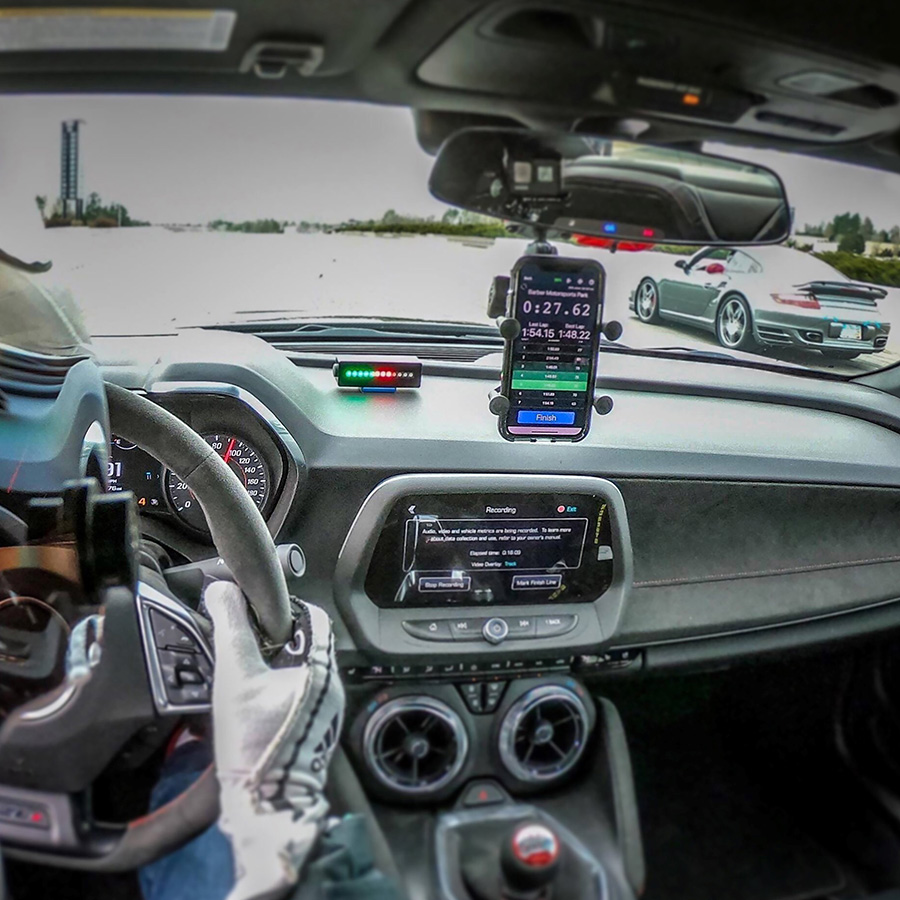“If you’re going to wait for a patent before starting your business, I’d strongly recommend against that.”

Andrew Rains’ technological innovation, APEX Pro, measures race cars’ acceleration/deceleration, tire wear and turning ratios through tight corners—real-time data a driver needs to be more competitive. But Rains had a problem. His technology wasn’t patent protected.
“There are similarly priced products out there that we compete with, but if you want to see your real-time performance that’s not based on elapsed times around the track and you prefer to see, ‘Am I driving this car to the limit or not?’, we’re the only ones who can do that,” said Rains, a 2016 Harbert College marketing graduate. “Plus, having a patent protects your product and equity that you built into your business brand. It’s also about building credibility.”
Rains’ patent journey began in 2017. Unlike his profession, it wasn’t a speedy process. There were multiple challenges to overcome and internal questions to answer.
“The first challenge here is validation because there can be significant costs associated with the entire patent process,” said Scott McGlon, entrepreneur-in-residence at the Harbert College. “Is the new intellectual property truly unique with no other identical patented claims? If you get a granted patent, is it defensible? Can you cover the cost to obtain a patent? If a new inventor’s formulation of patent claims is the same, or similar, to what’s already being claimed through another granted patent, this usually means you go back to the drawing board.”
Sometimes, it’s not worth the effort.
“An inventor must consider the time and commitment to thorough patent research, provisional patent application time and fees, hiring a patent attorney, extensive time devoted to the patent process, and whether the resources are available to defend it,” McGlon added. “If it is a medical breakthrough in curing cancer, the pursuit of a patent is an easy decision. The waters get muddy when the decision is not so straightforward.”
APEX Pro received notice from the U.S. Patent Office in December that its intellectual property was accepted. Rains is relieved his Birmingham-based business didn’t wait three and a half years for a patent to begin marketing and selling its product.
“If you’re going to wait for a patent before starting your business, I’d strongly recommend against that,” he said. “If you absolutely must have the patent for your product to be viable, then that’s something to consider. You’ve just got to have patience.”
